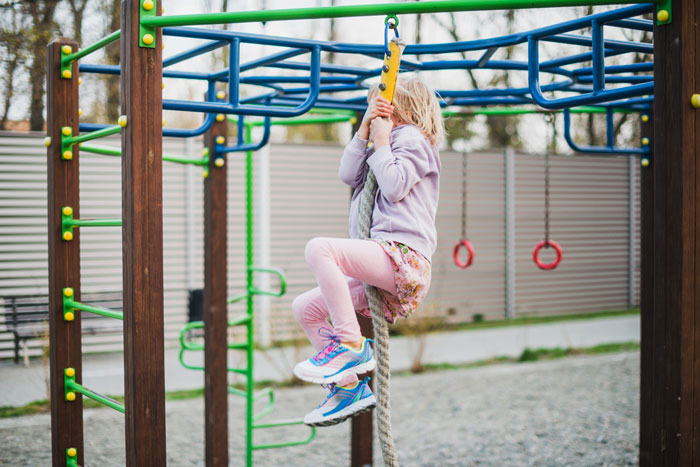Is It Wrong to Install a Backyard Playground After Restricting Neighbor Kids from Trespassing?
A homeowner, concerned about the safety and integrity of their property, faced ongoing issues with neighborhood children using their driveway as a play area. Despite multiple polite requests to cease activities that posed risks—such as throwing objects at windows and breaking rocks—the behavior persisted. The situation escalated to the point where law enforcement was involved, resulting in the children being formally trespassed.
Coinciding with these events, the homeowner decided to install a backyard playground to accommodate their own child’s developmental needs. This decision was met with criticism from a friend, who accused the homeowner of flaunting their resources and depriving neighborhood children of a play space. The homeowner contends that, had the neighbor children respected boundaries, they might have been welcome to use the new playground.
Being a kind neighbor is usually free, unless it costs you your windows and fresh paint job

One woman tries to play nice with the local kids, but things get out of hand when they turn her property into a playground







In residential neighborhoods, the interplay between individual property rights and communal harmony often presents complex challenges. The situation described involves a homeowner who, after repeated incidents of neighboring children trespassing and causing property damage, decided to install a private playground for their own child. This decision, while seemingly straightforward, touches upon legal rights, community perceptions, and child safety considerations.
Legal Rights and Property Ownership

Homeowners possess the unequivocal right to enjoy and utilize their property within the bounds of local regulations. This includes the authority to restrict access to their property and to take measures against unauthorized use. In the described case, the homeowner faced ongoing trespassing by neighbor children, leading to property damage and safety concerns. After unsuccessful attempts to address the issue amicably, the homeowner exercised their legal right to involve law enforcement to enforce trespassing laws. This action underscores the importance of respecting property boundaries and the legal mechanisms available to property owners to protect their rights.
Community Perceptions and Social Dynamics
The homeowner’s decision to install a playground for their child, following the enforcement of property boundaries, elicited criticism from some community members. Accusations of “flaunting wealth” and “eliminating” play spaces for neighborhood children reflect underlying tensions and differing expectations within the community. Such reactions highlight the delicate balance between individual rights and communal expectations. While homeowners are entitled to make decisions that best serve their family’s needs, these choices can sometimes be misinterpreted or resented by others, especially in close-knit communities where shared spaces and resources are valued.
Child Safety and the Attractive Nuisance Doctrine
Installing a playground introduces considerations related to child safety and potential legal liabilities. The “attractive nuisance” doctrine holds property owners accountable if a hazardous condition on their property attracts children who then suffer injuries. To mitigate such risks, homeowners should ensure that play equipment is safely installed, regularly maintained, and, if necessary, enclosed to prevent unauthorized access. Taking these precautions not only safeguards children but also protects homeowners from potential legal repercussions.

The homeowner’s actions, rooted in the desire to provide a safe and enjoyable environment for their child, are legally justified and reflect a proactive approach to property management. However, the ensuing community reactions underscore the complexities of neighborhood dynamics, where individual decisions can have broader social implications. Navigating these situations requires a balance of asserting one’s rights while maintaining open communication and understanding within the community.
Netizens side with the woman saying she is not the jerk in the story, as she doesn’t owe her neighbors access to her property







